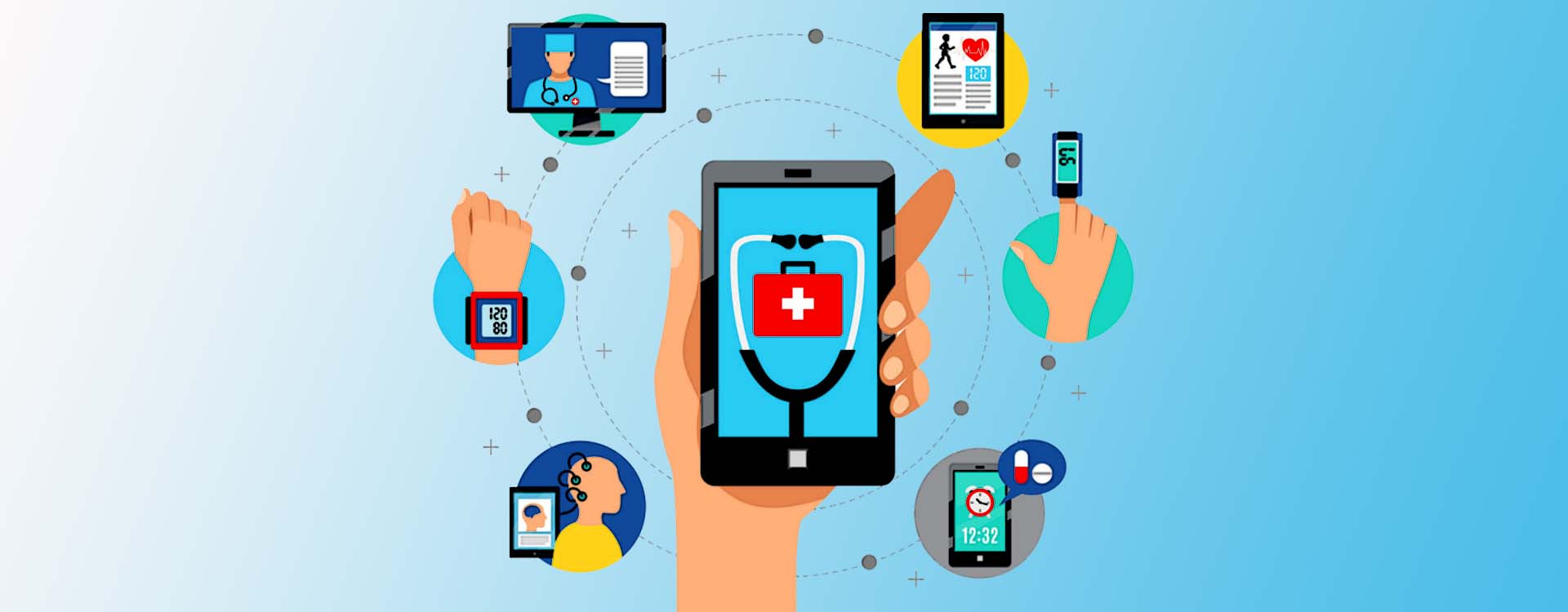Over the past year, the Indian healthcare industry has been battling several challenges to contain the spread of coronavirus. The healthcare industry in the wake of the pandemic is reeling under a lack of manpower, beds, ambulance vans, oxygen cylinders, ventilators, etc. Amidst times of uncertainty, new services have mushroomed in the healthcare delivery to ensure that the individuals receive an accurate diagnosis and health solutions while keeping visits to hospitals and clinics to a minimum. As per a study from India Brand Equity Foundation, the healthcare market in India is estimated to be a market worth $372 billion by 2022. The market will gain momentum in India to become the largest sector in terms of generating revenue and employment. Indian healthcare is plagued by the low doctor-to-patient ratio and equally low patient-to-hospital bed ratio. Therefore, the new healthcare delivery model is being welcomed by the hospitals and clinics to offer better medical assistance to the masses.
‘‘
As per a study from India Brand Equity Foundation, the healthcare market in India is estimated to be a market worth $372 billion by 2022.
New Services in Healthcare delivery
Remote Home Healthcare
Pregnant women and senile individuals with underlying medical conditions like respiratory disease, diabetes, cardiovascular diseases are more susceptible to contract the virus, which necessitates limiting their out-of-home movement to hospitals and clinics. The remote home healthcare services that comprise remote monitoring and telehealth technologies play a pivotal role in offering out-of-hospital care delivery. The emergence of medical devices such as glucometer, oximeter, and foetal heart rate instruments for expecting mothers and ailing patients at home is becoming easier for remote home healthcare to gain ground. Any deviation found in the condition of health alerts doctors, who take up necessary video interactions with patients, therefore, avoiding unnecessary hospital visits.
Tele-ICU Service
Tele-ICU service is a management software designed specifically to assist the medical staff for observing critical patients. Currently, the ICU department of any hospital is occupied with infected patients of coronavirus that require constant monitoring of medicines taken, which can be cumbersome. The software can send automated reminders to nurses for the distribution of medicines to ensure no repetition and allow doctors to remotely monitor patients and communicate better.
Geospatial Intelligence
The traffic jams of Indian roads are often a hindrance for the ambulance to reach the hospital quicker causing the death of the patient in the process. Geospatial Intelligence is a GPS-based software that coordinates the best routes for transporting a patient from its location to the nearest healthcare facility. The technology can also monitor patient traffic in all hospitals and is capable of tracking hospital bed turnover, which is a dire need.
Ambulance Fleet Services
Several hospitals are launching ambulance services, where a call on the emergency number is diverted to the doctors who address the concerns of patients through real-time monitoring. In critical cases such as stroke or heart attack, the patient is accompanied by the doctor in the ambulance whose treatment commences in the ambulance itself.
What is in it for the Medical Healthcare Start-ups?
Driven by rising income, better health awareness, lifestyle diseases, increasing access to insurance and witnessing the pandemic; Indian healthcare market size is expected to increase three-fold to Rs. 8.6 trillion (US$ 133.44 billion) by 2022. The present situation in India is a testimony of what inadequacy in healthcare facilities looks like. Therefore, start-ups foraying into telehealth services, medical devices, and hospital management software have a promising future in Indian healthcare, since the healthcare market lacks management and better utilisation of medical resources to offer affordable healthcare in remote villages and towns. The government’s efforts to establish Medtech Center of Excellence to incubate and offer support to start-ups in Medical equipment/electronics and Health Informatics right from its ideation to marketing will usher in more start-ups to tap the healthcare market.
The government aims to develop India as a global healthcare hub. The government also aims to increase healthcare spending to three percent of the GDP by 2022. And completely the healthcare ecosystem is the rising manpower. A large pool of well-trained medical professionals is available in India.




